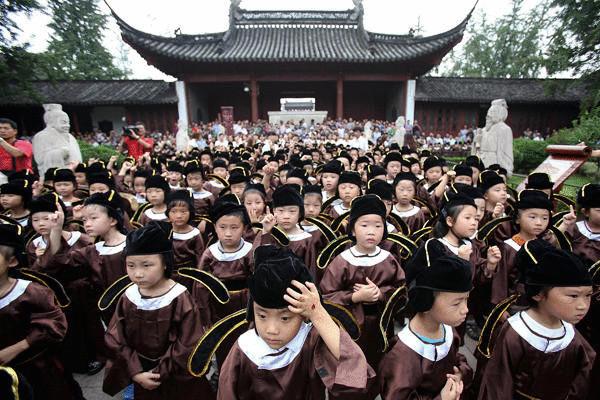634
The differences of the Chinese system of education of children
After the release of the famous book by Amy Chua, “Battle cry of the mother tigress” and article “Why Chinese mother” in the famous American edition The Wall Street Journal, among parents is an ongoing debate about the features of education in different cultures. For example, Amy Chua argues that Chinese parenting techniques help to raise more successful children.
This question has interested researchers from Stanford University. They decided to shed some light on what are the key fundamental differences between the parenting practices of Chinese and American parents. The results of this study were published in the academic journal Personality and Social Psychology Bulletin.
Chinese parenting
To identify cultural differences in parenting, the researchers compared how the older students (the origin of the Chinese and the Americans) describe their relationship with their mothers. Scientists have also studied: whether motivated by Chinese and American mothers of their children for success in school.
Lead researcher Alyssa Fu explains that scientific work focuses on maternal respect, because in Chinese families, mothers generally are more involved in the lives of children. "Chinese parents encourage their children to build strong relationships with parents. In other words, Chinese children are prepared for the fact that they were dependent on each other”, — said the expert.
At the same time, European and American children parents prepare for independence. Parents encourage their children to those seen in individuals themselves. Moms and dads also seek to explore the thoughts and feelings of their children. This is a key difference between Chinese education and American.

Chinese proverb on parenting and American principles
Alyssa Fu and colleagues conducted four studies on this topic. In the first study students were asked to tell about their moms. Chinese children often described their relationships with the mother (for example, said: “She pushes me to succeed”), while European American children were more often described by mothers as individuals talked about how they look. (For example, “my mom has blue eyes and she loves to read.”)
During the second study students were asked to rate the feelings they associated with their mothers and whether they feel pressure from the parents. As predicted by scientists, Chinese children have greater dependence on their mothers. They also experience greater pressure by their mothers, but do not feel this discomfort.
European and American children reported pressure from their mothers, they regarded as a negative factor. And the more pressure they feel the less they think that their mother support. European and American children are also more likely to feel that their mother did not understand. They also seek to defend their independence.
During the third and fourth study, students were asked to solve a complex problem. While Chinese children were more motivated to solve the problem when they thought about their moms. European and American children were more motivated, thought about his own future.
Interesting was the fact that the Chinese students were assisted not so much thoughts about my mother, how the memories of any moments when the mother “pressed” on their children and forced to do anything.
All these four studies highlight fundamental differences in the methods of education that are present in different cultures. The interdependence of Chinese mothers and their children allows you to use this link for motivation during demanding tasks. European and American children on the contrary consider themselves independent from their mothers. Accordingly, the pressure of the mother for them can be motivating. In the European and American context, overcoming failure is a personal achievement, not collective.
The Chinese system of education of children
The scientific results concern not only the relations of children and parents. They also explain certain dynamics of the relationship between students and teachers. "For example, the Chinese are very sensitive not only to the expectations of their mothers, but also to socialnoy hierarchy. So for them an important role plays the teacher's authority is much more than European and American children”, — the expert explains.
Scientists believe that both approaches — both Chinese and American are in something true. European and American mothers are correct in their assumption that too much maternal involvement can kill motivation. So they instilled in their children a strong sense of independence. But Chinese moms are right to think that their relationship with the child can serve as a great motivation for your son or daughter.
Source: babyreporter.eu























